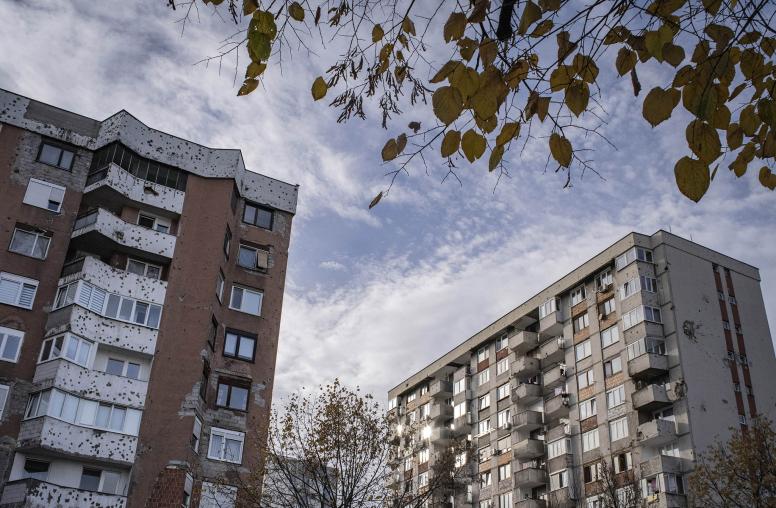The Treaty of Versailles: A Century Later
A Reflection on Ending War and Building International Peace
The end of World War I ushered in a new international system based on nation-states, institutions, and norms meant to prevent future conflict. Some of the architects of this order envisioned a world made safe and prosperous by the collective action of all states, with national self-determination as a basis for state legitimacy. The peace outlined in the Treaty of Versailles set precedents for a new international order that resonate to the present day—but may now be changing.
On the centennial anniversary of the Treaty of Versailles, USIP examined what the international community has learned from 100 years of peacebuilding in pursuit of a stable international order. Experts from government and academia reflected on how the pillars of the international system that emerged from Versailles evolved throughout the 20th century; with special emphasis on the United States’ leadership in building an international, rules-based order centered around multilateral institutions and alliances seeking to provide security, wealth creation, and social advancement. The conversation then explored ways in which the international system and long-held norms are changing, and how the international system stands to evolve in the years and decades ahead. Take part in the discussion on Twitter with #Versailles100.
This event is co-sponsored by the United States Institute of Peace, The Woodrow Wilson Center History and Public Policy Program, The National World War I Museum and Memorial, National History Day, and The Doughboy Foundation.
Agenda
8:30am - 9:00am: Registration and Coffee
9:00am - 9:15am: Welcome Remarks
- Michael Yaffe
Vice President, Middle East and Africa Center, United States Institute of Peace
9:15am - 10:30am: Panel 1: The Treaty of Versailles Reassessed: Shaping the International Order in the Immediate Aftermath of WWI
- Mustafa Aksalal
Associate Professor of History and Nesuhi Ertegun Chair of Modern Turkish Studies, Georgetown University - Robert Kagan
Stephen & Barbara Friedman Senior Fellow, Brookings Institution - Eric Lohr
Professor and Susan E. Carmel Chair of Russian History and Culture History, American University - Matt Naylor, moderator
President & CEO, The National World War I Museum and Memorial
10:30am - 10:45am: Coffee Break
10:45am - 12:00pm: Panel 2: The Post-WWII International Order: The Peacebuilding Inheritance from World War One and the Treaty of Versailles
- Ellen Laipson
Professor, International Security Program Manager; Director for the Center of Security Policy Studies, George Mason University - Robert Litwak
Senior Vice President and Director of International Security Studies, Woodrow Wilson Center for International Scholars - Aviel Roshwald
Professor, Georgetown University - Wess Mitchell, moderator
Senior Advisor, United States Institute of Peace
12:00pm - 1:15pm: Lunch
12:30pm: Lunch Keynote Address: “Versailles Legacies: Council on Foreign Relations and the International System”
- Richard Haass
President, Council on Foreign Relations - Michael Yaffe, moderator
Vice President, Middle East and Africa Center, United States Institute of Peace
1:15pm - 1:30pm: Coffee Break
1:30pm - 2:30pm: Panel 3: The Future of Peacebuilding and International Order in the 21st Century
- Michael E. Brown
Professor of International Affairs and Political Science, George Washington University - Maria Langan-Riekhof
National Intelligence Council - Robin Wright
Distinguished Scholar, United States Institute of Peace
2:30pm - 2:50pm: Closing Remarks
- Matthew Naylor
President & CEO, The National World War I Museum and Memorial - Michael Yaffe
Vice President, Middle East and Africa Center, United States Institute of Peace, United States Institute of Peace



